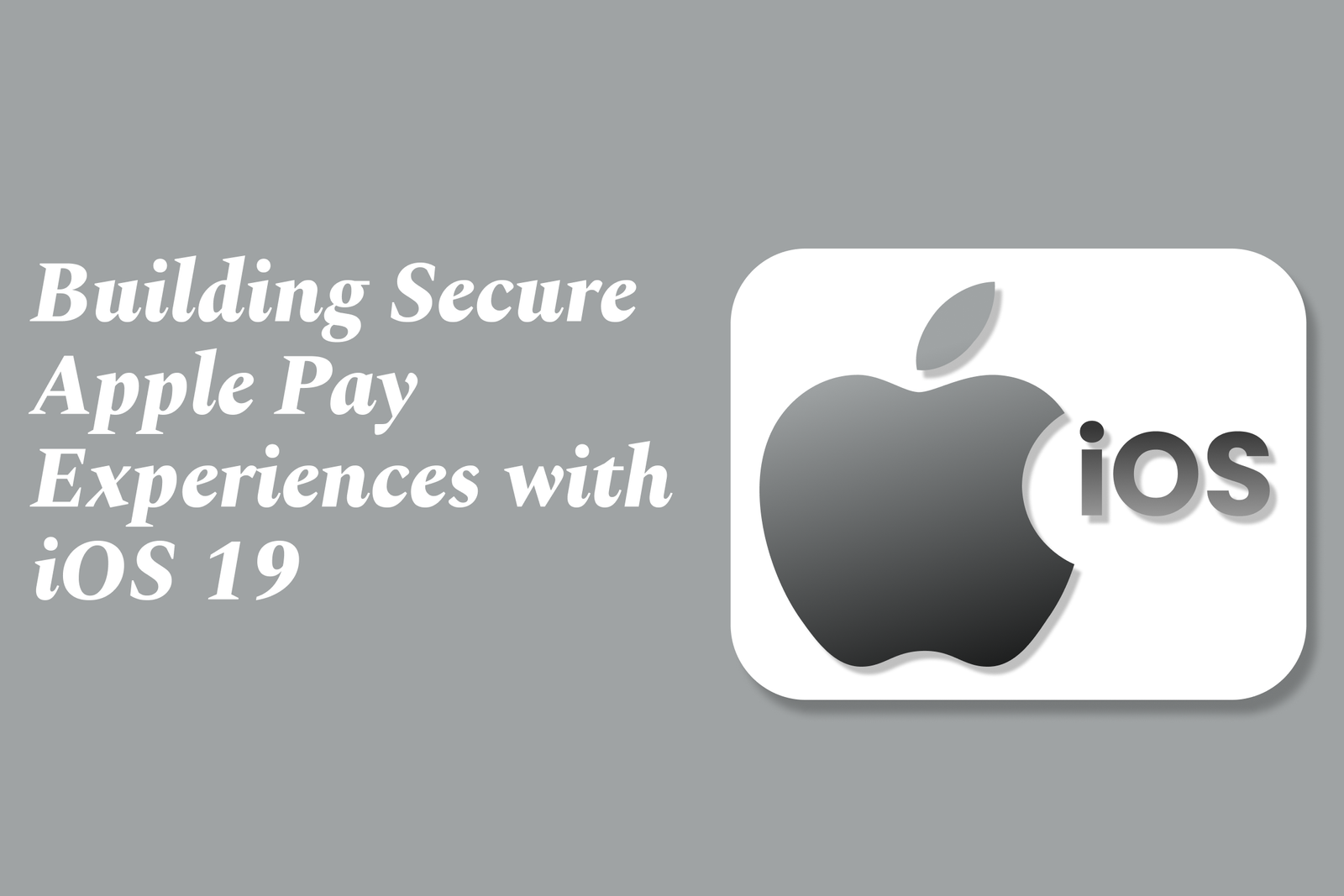Building Secure Apple Pay Experiences with iOS 19
Building secure Apple Pay experiences with iOS 19 leverages Apple's enhanced NFC & Secure Element platform, enabling developers to create safe, contactless payment and access solutions while ensuring user privacy and compliance through strict security protocols and authorized app access.
Building Secure Apple Pay Experiences with iOS 19
1 ) Introduction to NFC & SE Platform for Secure Transactions
iOS 18.1 introduced the NFC & SE (Secure Element) Platform, enabling secure contactless transactions within compatible iOS apps. This platform supports various use cases such as in store payments, car keys, transit passes, corporate and student IDs, home and hotel keys, loyalty and rewards, and event tickets. Future updates plan to include government IDs. The platform integrates multiple hardware and software features, including the Secure Element, Secure Enclave, and Apple Servers, to ensure security and reliability on iPhone devices.
2 ) Developer Access and Security Compliance
To protect user privacy and maintain high security standards, only authorized developers who enter into an agreement with Apple and obtain the NFC & SE Platform Entitlement can access related APIs. These developers must adhere to regulatory requirements and commit to ongoing security and privacy standards, ensuring that apps using this technology provide a secure user experience.
3 ) How NFC Transactions Work in iOS Apps
Users can initiate NFC transactions directly within eligible iOS apps by interacting with compatible NFC terminals. This seamless integration allows developers to build secure, contactless features into their apps, leveraging the iPhone’s advanced hardware capabilities and Apple's secure infrastructure.
4 ) Anticipated Future Developments
Apple continues to evolve the platform, aiming to expand the range of secure contactless use cases accessible to developers and users. This reflects Apple's commitment to enhancing mobile payment security and convenience on iOS devices.
Note: The article primarily focuses on the security infrastructure and developer guidelines related to Apple Pay and NFC transactions in iOS 19, highlighting Apple’s efforts to provide a secure, authorized environment for contactless payments and related features.
https://justacademy.in/news-detail/android-app-monetization-strategies-2025
https://justacademy.in/news-detail/android-voice-typing-enhancements
https://justacademy.in/news-detail/how-react-native-handles-multitasking-on-modern-devices
https://justacademy.in/news-detail/flutter-salary-trends-in-2025
https://justacademy.in/news-detail/swiftui-and-accessibility:-best-practices-in-2025
Related Posts
Java supports GDPR and data privacy by enabling secure data handling through encryption, controlled access, and precise data management. It allows developers to minimize PII exposure, ensure data confidentiality, and design workflows that comply with data protection regulations effectively.
Java code quality tools have evolved to include advanced static analysis, integrated security checks, and AI-powered code reviews. These updates help developers detect bugs, enforce coding standards, and enhance security, streamlining the development process and improving overall code reliability.
Java remains a cornerstone in big tech companies, evolving with modern features like records, pattern matching, and virtual threads. Its robust ecosystem, enhanced performance, and growing AI integrations keep it vital for both legacy systems and innovative new projects.
Java and CI/CD pipeline optimizations streamline Java application development by automating builds, tests, and deployments. They improve efficiency through parallelization, caching, and secure secrets management, enabling faster feedback loops and more reliable, scalable software delivery.
Java supports modern cryptography standards through its flexible Java Cryptography Architecture (JCA), enabling integration of advanced algorithms like AES, EdDSA, and post-quantum tools. Libraries like Bouncy Castle offer FIPS-certified, hardware-accelerated implementations for secure development.
Java 23 enhances record patterns by enabling concise, direct destructuring of record components within pattern matching, simplifying type checks and data extraction. This improvement boosts code readability and expressiveness by reducing boilerplate in handling immutable data classes.
Java remains a top choice for mobile app backends, powering scalable, secure, and high-performance server-side solutions. Latest trends include cloud-native microservices, reactive programming, and enhanced JVM optimizations, enabling efficient, flexible, and robust mobile backend development.
Java SE 24 and LTS Java SE 21 offer enhanced features and performance, while Apache Spark 4.0.0 introduces Scala 2.13 support and advanced ML and SQL capabilities. Together, they empower developers to build scalable, high-performance data applications with modern tools.
JUnit 5 modernizes Java testing with a modular architecture, improved assertions, and seamless Java 8+ support. Beyond JUnit, tools like Mockito and AssertJ enhance mocking and assertions, creating a powerful, flexible ecosystem for writing clean, efficient Java unit tests.
Java plays a pivotal role in cloud automation tools by providing a robust, platform-independent language used to build scalable automation frameworks like Jenkins and Selenium, enabling efficient CI/CD pipelines, testing, and orchestration across diverse cloud environments.










